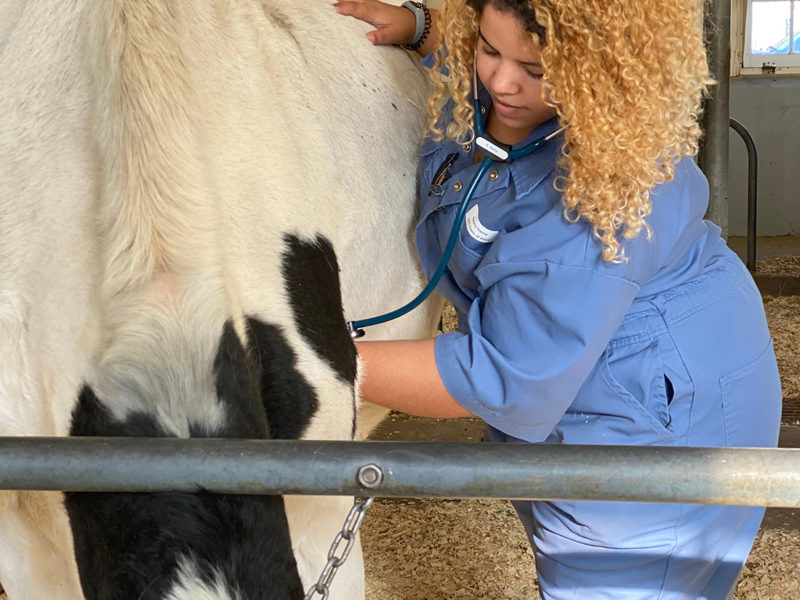High veterinary school tuition costs and competition for spots pose challenges for students and producers.
The situation is so dire that some Prairie producers cannot access vets to regularly check herd health, says WestGen Group CEO Chris Parry, speaking at the organization’s annual general meeting, March 22.
The situation is one that’s been ongoing in BC for several years, with rural and remote areas being particularly affected.
In response, Chris Dolbec of Oliver, whose daughter attends the Western College of Veterinary Medicine at the University of Saskatchewan, is petitioning the BC Ministry of Advanced Education and Skills Training.
Dolbec wants the province to subsidize more seats for BC students. Right now, there are 20 seats at the college reserved for BC. Provincially funded students pay $11,000 a year; additional students from BC pay $68,000.
But when the University of Calgary opened its Faculty of Veterinary Medicine in 2019, an additional 20 seats became available because Alberta shifted its support to students at the new school.
This change opened more seats for the other Western provinces in 2020, but BC declined funding and the seats were made available to all domestic and international applicants. The cost for BC to take Alberta’s 20 seats would be an annual $8.3 million.
Dolbec says this makes the difference in tuition between subsidized and non-subsidized seats at the college especially unfair. While spots are available at the college, the province refuses to ante up.
Dolbec says improved accessibility to vet school could help mitigate the vet shortage.
Some non-subsidized students graduate with high debt loads and are forced to move where the cost of living is low or choose to care for small animals, where the pay is often higher than for large animals.
The BC Labour Market Outlook predicts that 770 job openings will be become available for veterinarians through to 2029. A 2019 Canadian Veterinary Medical Association survey, requested by the Ministry of Advanced Education and Skills Training, showed that 65% of BC veterinary employers would hire at least one veterinarian in the next two years and would hire another vet immediately if candidates were available.
“The ministry understands the challenges that veterinarians, their support staff, and people are experiencing with respect to seeking small and large animal care,” the BC Ministry of Advanced Education and Skills Training said in a statement to Country Life in BC. “British Columbia, like many other Canadian jurisdictions, is currently experiencing labour market shortages, and continues to work towards providing made-in-BC solutions to resolve them in the short, medium, and long-term.”


 Investment intentions dip
Investment intentions dip